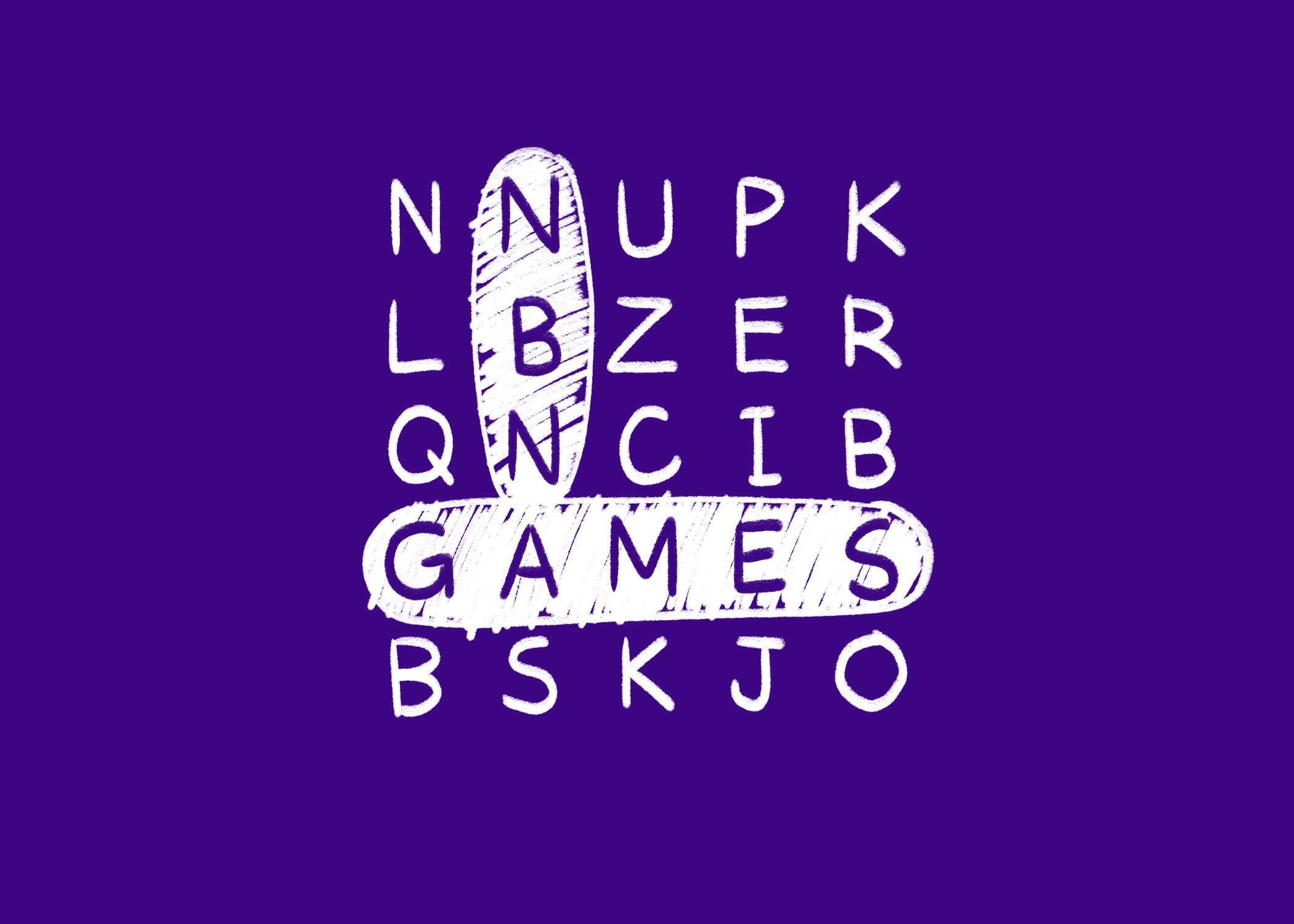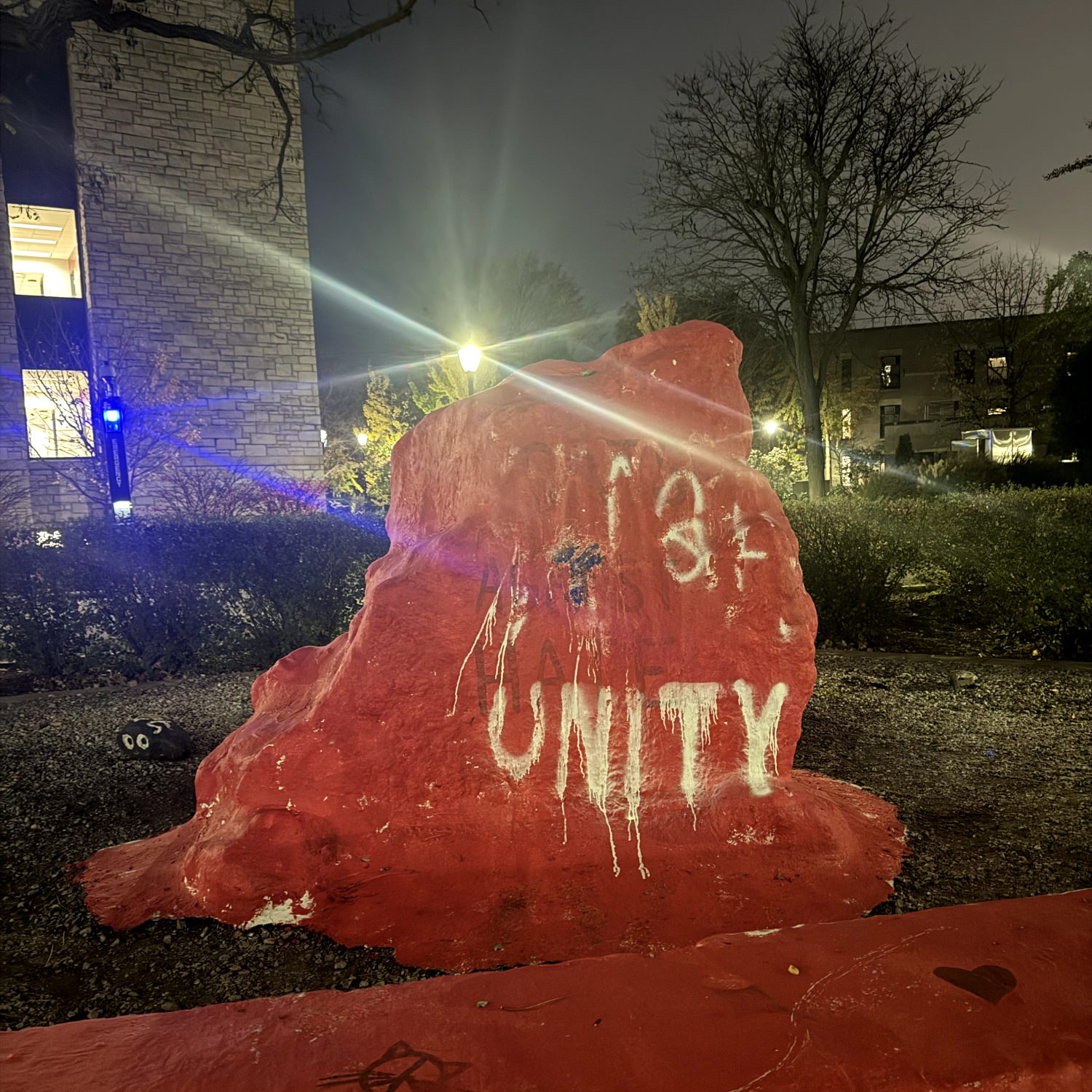Join hosts Dallas, Jezel, Valentina and Aryn as they unpack Trump’s re-election and discuss what it means for FGLI students at Northwestern and beyond. They cover the impact of policies like Project 2025, the challenges of educational funding and how FGLI communities can stay resilient.
Dallas: Hey, everyone. I’m Dallas.
Valentina: I’m Valentina.
Aryn: I’m Aryn.
Jezel: I’m Jezel, and welcome back to DiscountEDU, a podcast where we talk about our experiences as FGLI, or first-generation low-income students at Northwestern.
Valentina: Welcome to the unofficial season two of DiscountEDU. YIPPEEE! AKA we’re sophomores now. YAY!
[DiscountEDU – Theme Music]
Dallas: There’s a lot going on in our lives. Beyond our lives even.
Aryn: Well…
Valentina: [Big sigh] Trunk got re-elected.
Jezel: Trunk? [laughter]
Valentina: Trunk.
Dallas: Former President Donald Trump just got re-elected for office, and as FGLI students, we are feeling the effects of the election results.
Jezel: Our members are affected not only by his political stance and legislative policies presented by his party, but also by the discriminatory rhetoric perpetuated by his platform.
Valentina: We’re not here to offer commentary on the fact that he won. We are here because, as FGLI students, we find it essential to have conversations about how we can continue to uplift and invest in our communities, as well as support one another. Give ourselves time to reflect and even grieve, as applicable.
Dallas: We are not representative of any entire FGLI community. There is no one FGLI narrative and we do not want to homogenize our diverse experiences.
Valentina: Those are true.
Aryn: But we do want to open a space to have these conversations. Before getting into the more personal or meaningful aspects of what the election results mean for students like us, it is worth noting how Northwestern, as an institution, has publicly responded.
President Schill gave his thoughts at a Faculty Senate meeting on Wednesday, November 13.
He showed concern over the lack of support for universities coming from the Republican party and the complicated spot it leaves colleges in.
On behalf of the institution, Schill said he would work with organizations and universities to combat any potential policies and legislation that could affect universities and communicated the need to protect Northwestern over these next couple of years.
Jezel: Speaking about potential policies and legislation, Northwestern is not the only university concerned about the repercussions of President-elect Donald Trump stepping back into the White House come January.
Valentina: Yeah, not even universities, like elementary schools, middle schools…
Jezel: Very exciting.
Valentina: Yippee.
Jezel: So Donald Trump is very vocal about his wish to eliminate the Department of Education which was established by Jimmy Carter. Shoutout shoutout…
Valentina: He’s alive still, can you believe that?
Jezel: Yeah, so he ate. [laughs]
Which provides programs such as Title I funding for low-achieving and low-income K-12 schools, as well as Pell Grants for undergraduate students with high financial need.
Dallas: Like us.
Jezel: Our FGLI peoples.
Dallas: Yes.
Jezel: So throughout Trump’s first presidency, he proposed billions in cuts to the Department of Education and he’s a long-time advocate for school choice. So school choice is a significant aspect of his education policy which reflects a broader agenda to decentralize education and increase parental control over schooling options.
So the last Trump administration proposed slashing the Education Department’s budget every year he was in power, with large cuts to financial aid — its 2020 budget called for a $5.6 billion…
Dallas: Wow.
Jezel: Which is nearly an 8 percent cut.
Valentina: Light work, light work yeah.
Jezel: So these programs, like Title I funding and Pell Grants, especially are crucial for FGLI students. Title I helps low-achieving and low-income K-12 schools and provides resources that can improve educational outcomes for students who might otherwise lack support. Shoutout my school district!
Jezel and Valentina: [big laugh]
Jezel: And then Pell Grants offer financial aid to undergraduates with high financial need which makes college more accessible for FGLI students.
These programs in general level the playing field by providing the necessary financial support and resources, enabling FGLI students to pursue higher education and achieve their academic goals. Without the support, many FGLI students might struggle to afford college or access the resources needed to succeed going forward.
Valentina: Mm period. I am a work-study warrior. Oh, that’s a cute name.
Jezel: That is a cute name, me too.
Valentina: Copyright, copyrighting. How do I copyright something?
Dallas and Jezel: Uhhhh.
Valentina: Don’t worry about it.
Dallas: Pay for it.
Valentina: Oh, I don’t have money…
Dallas: Exactly… see the barriers we have to go against?
Everyone: [big laugh]
Valentina: That was good, that was good.
[DiscountEDU – Theme Music Break]
Dallas: So, with all that said, it kind of leaves us thinking: What does that mean for FGLI students now with a second term of Trump and his former policies? And even some new policies.
A lot is being said about Trump’s plans right now. Project 2025 is the most popular topic; I’m sure everyone listening has heard about it. Trump supporters are kind of saying that it’s an act of fear-mongering. But even if that were the case, it’s still important to do your research and take precautions regarding what this may hold for the future of the education system, you know, considering we’re all making our way through undergrad.
I choose to take it more to heart because, as we all know, Trump claims to have “concepts of a plan,” so got to be conscious of what he’s trying to pass through legislation.
But according to The Leadership Conference on Civil and Human Rights, Project 2025 plans to end loan forgiveness which obviously affects FGLIs who are taking out current loans, or plan to take out loans in the future, or who have already taken out loans and thought they would be forgiven. Which, I mean…
Valentina: That’s crazy.
Dallas: Yeah pretty crazy.
Jezel: Couldn’t be me.
Valentina: Just absolutely crazy, like what?
Jezel: That’s not me, definitely.
Dallas: Project 2025 plans to cut funding to public schools. So, you know, how will people even make it to a university like Northwestern if they don’t get the proper education beforehand? I mean, I went to public school for — I guess you could say grade school — which was a fun experience but there definitely wasn’t a lot of funding. You can tell the difference.
Valentina: Have you seen Abbott Elementary?
Dallas: Yes.
Valentina: I love that show. Shoutout to Abbott Elementary, you should all watch it. Especially FGLI students.
Jezel: Shoutout public schools, me in my K-12.
Dallas: Yeah public schools shape who FGLIs are, for the most part, so cutting back funding would just be like a big slap in the face I feel.
They also plan to par back diversity efforts on campuses. I mean… I mean, maybe I’m ignorant, but I believe most FGLIs are people of color, so how are they gonna thrive in a university space if they don’t see people like them?
And then the most ultimate point of all is Trump’s threats on the Department of Education. In most recent news, he picked Linda McMahon for Secretary of Education. She’s one of his top donors, she’s a former cabinet member and she’s a wife to the former WWE Chair Vince McMahon. And Trump wants her to shift the responsibility of education back to the states and she will be a fierce advocate for parents.
So, if you’re a FGLI student, be cognizant of Trump’s policies. Keep an eye out for what he might plan to do, his “concepts of a plan.” Stay up to date on those concepts and how they will affect the amount of aid you may or may not be getting. And just stay alert, guys.
Valentina: You’re right, I didn’t even think of that. I was so focused on the impacts of the Department of Education, that I didn’t realize…
Jezel: The FAFSA?
Valentina: The FAFSA, yeah. Get on that, fill that out as soon as you can.
Jezel: Get on your FAFSA game.
Valentina: Get the money, yeah.
[DiscountEDU – Theme Music Break]
Valentina: As we continue to navigate the realities of the 2024 election results, I want to emphasize that the issues were not born with Donald Trump, but have become exacerbated by his discrimination and large platform. Discrimination has been alive and well in the United States, but now, the cult of Donald Trump has the power to enact policies that reflect this.
Aryn: So how can we deal with this as FGLI individuals?
Valentina: Well first, by turning “FGLI individuals” into “FGLI community.” Okay, okay.
Dallas: You cooked.
Valentina: Thank you, thank you.
Valentina: At Northwestern, right now we have Student Enrichment Services (SES) and Quest+, spaces specifically centered around FGLI communities. We also have in the Northwestern Career Advancement, there’s a specific team for Black Indigenous People of Color (BIPOC) and first-gen low-income students, so make sure to make use of that.
But when going through grief, community is and can be essential. And we need to process this as a community, we are not alone. However, it’s also important to not center our conversations just around Donald Trump. We help each other out. We are resilient, we are multidimensional. And we are also humans with fears, dreams, stresses, stressors, studies — you fill in the blank. But we are not defined by this man’s beliefs and actions.
In episode 4, where we shared some advice for prospective FGLI students, I said this verbatim: These systems weren’t made for people like us, first generation, lower income, people of color, any marginalized backgrounds. So the support systems you build are essential.
I want to bring this into today’s episode to reiterate that, as a group of people wanting to spotlight FGLI identities, DiscountEDU, us, we recognize that we cannot depend on Northwestern as an institution to protect us. We take care of ourselves and each other. And we want to continue to emphasize the sheer importance of building, maintaining and expanding communities. Especially those communities that celebrate our experiences and recognize the nuances of our intersecting identities without exploiting or tokenizing us.
We invite you to sit with that and reflect on how you can continue to take care of yourself and how others can show up for you. I love you friends.
Dallas: Yay.
Jezel: Awww. She’s so sweetie.
Dallas: Yeah, plug all for the multicultural centers at Northwestern.
Valentina: Yeah, come say hi. MCC shoutout. GSRC shoutout.
Dallas: Black House.
Valentina: Black House shoutout. SES, the SES spot in Plex.
Valentina: Thank you so much for joining us today. It is definitely a time but…
Dallas: We’ll get through it.
Valentina: Yeah, this is like we said. This discrimination has been alive and well in the United States and some people are waking up to it right now.
Dallas: Sadly… it’s been around for years and years and years and years.
Valentina: So true. It’s alive right now even when Trump isn’t in office and it will continue to be alive if we don’t challenge um…
Dallas: The system.
Valentina: Yeah, the systems. The system…
Dallas: The systemic…
Jezel: Aww, y’all finish each other’s sentences.
Valentina: I mean it’s crazy! What? We finish each other’s…
Dallas: Sandwiches. That’s what I was gonna say.
Valentina: We finish each other’s episodes of DiscountEDU. Thank you! This concludes the seventh episode of our lovely, lovely podcast and we are so happy to be back for this year — academic year.
Dallas: This is Dallas.
Valentina: This is Valentina.
Aryn: This is Aryn.
Jezel: This is Jezel.
Dallas: And we’ll see you here next episode. Thanks for listening!
Jezel: Woooo.
Valentina: MEW.
[DiscountEDU – Theme Music]


